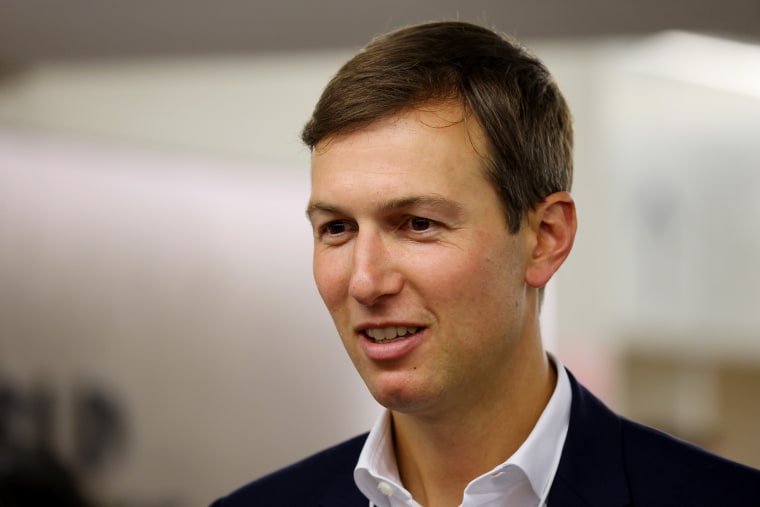Over the last couple of months, there’s been some striking reporting about Jared Kushner and the generous funding he’s received from Saudi Arabia. The New York Times reported yesterday that the deals have sparked the interest of a key congressional committee — which has begun an investigation.
Representative Carolyn B. Maloney, the New York Democrat who leads the House Committee on Oversight and Reform, gave Mr. Kushner a two-week deadline in a letter sent on Thursday to furnish documents related to the Saudi fund’s investment last year in his firm, Affinity Partners. She also asked for any personal correspondence between Mr. Kushner and the Saudi kingdom’s de facto leader, Crown Prince Mohammed bin Salman, during or after the Trump administration.
Kushner’s lawyer said in a written statement that the former White House official “fully abided by all legal and ethical guidelines both during and after his government service.” Democrats on the House Oversight Committee don’t appear convinced.
In an eight-page letter, Maloney told Kushner the panel is investigating “whether your personal financial interests improperly influenced U.S. foreign policy during the administration of your father-in-law, former President Trump.”
Given the available information, it appears to be a line of inquiry rooted in evidence.
Let’s circle back to our earlier coverage to review how we arrived at this point. Throughout Trump’s presidency, the Republican administration went out of its way to side with Riyadh, thanks to a foreign policy in the region that was shaped, at least in part, by Kushner, who made multiple trips to Saudi Arabia.
Six months after his father-in-law left the White House, Kushner secured a $2 billion investment from the main Saudi sovereign wealth fund — despite the fact that those responsible for helping oversee the fund were highly skeptical about giving Kushner’s firm this money. In fact, they accurately noted that Trump’s son-in-law had no relevant experience, and the firm’s operations were deemed “unsatisfactory in all aspects.”
Kushner got the money anyway, alongside an agreement that after the firm received its first $500 million installment, the inexperienced former White House official would hire a “qualified investment team,” which seems like the sort of thing Kushner probably should’ve done before the $2 billion deal.
Regardless, it was a tough deal to defend. Indeed, when the news first came to public light, there was a question as to whether the Saudis agreed to such an investment because of services rendered — which is to say, a possible reward for the pro-Saudi work Kushner did during his time in the White House — or because of possible services to come in the event of a second term for his father-in-law.
But in a follow-up report from the Times, the details started to look a little worse: Toward the end of the Trump era, while some on the Republican’s team explored ways to keep the then-president in power despite his defeat, Kushner didn’t just prepare for life after a powerful White House role, he also made a series of additional trips to the Middle East, meeting with representatives of countries his newly formed private equity firm would soon approach for substantial financial investments.
It’s not exactly a stretch to wonder about the degree to which Kushner may have leveraged his White House role to advance his business interests. It’s also not too surprising the House Oversight Committee has a few questions about all of this.

